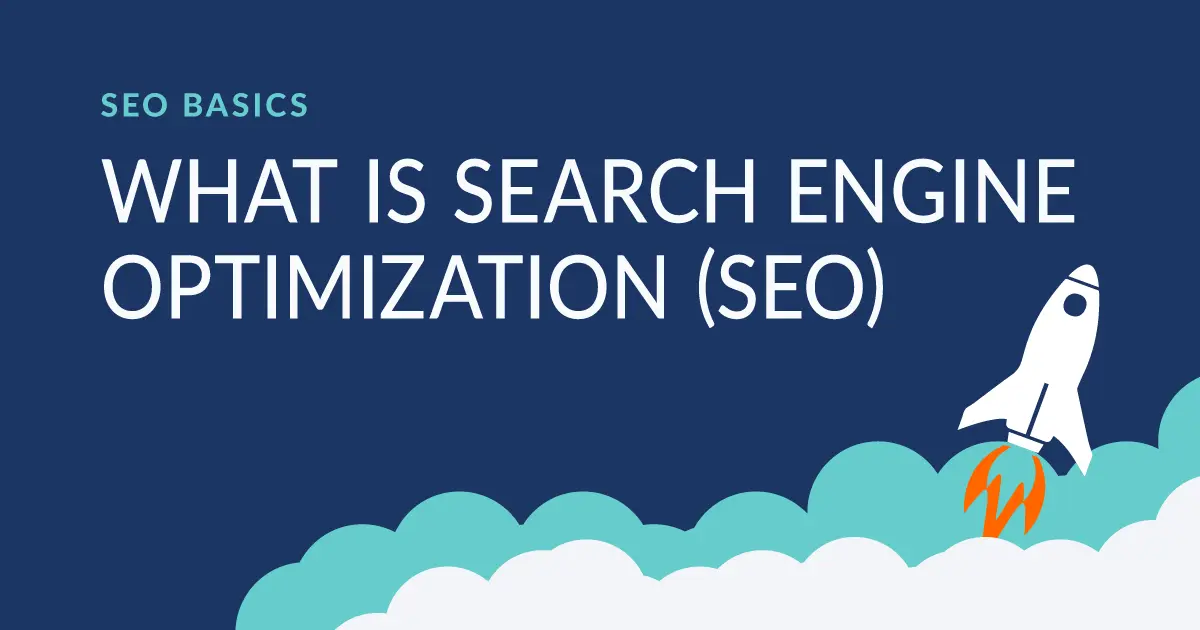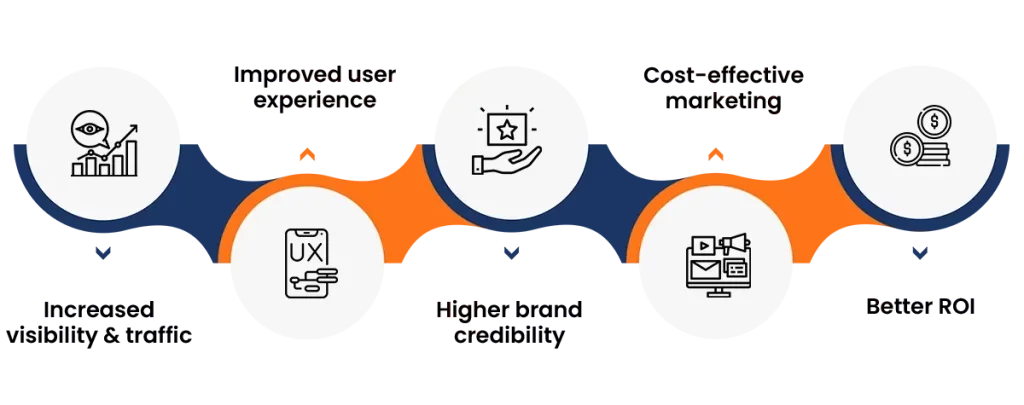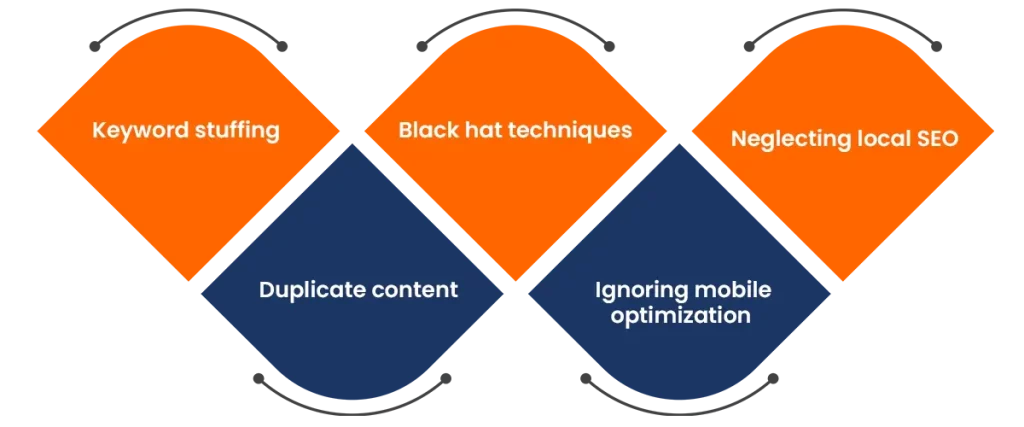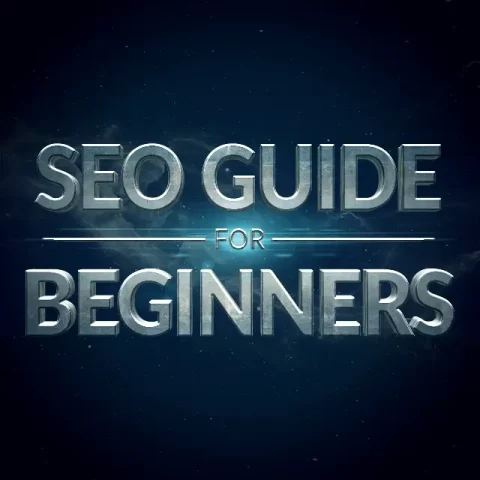
SEO is a common acronym for search engine optimization. If you are asking yourself what is SEO, first consider that it is estimated 68% of online experiences begin with a search engine. This statistic alone highlights the incredible power and influence that search engines have on online success aspirations. Whether a person is looking for information, products, or services, search engines play a vital role in connecting us to the vast world of the internet. But have you ever wondered how search engines decide which websites to show first in their results? That’s where SEO managed services comes into play.
Simply having a website is not enough to attract visitors in the highly competitive online environment. SEO is the practice of optimizing your website to increase its visibility in search engine results pages (SERPs). By employing various techniques and strategies, SEO aims to improve your website’s rankings and drive organic traffic.
In this article, we will unravel the mysteries of SEO and explore its significance in helping websites rise to the top of search engine rankings. So, if you’re ready to unlock the secrets behind successful online visibility, let’s dive in!
What is SEO and Why is it Important?
SEO refers to the process of optimizing your website’s structure, content, and overall online presence to make it more appealing to search engines. When search engines crawl websites, they analyze factors such as relevance, authority, and user experience to determine their rankings. SEO involves optimizing these factors to improve a website’s visibility in search results.
SEO plays a crucial role in your online success. By enhancing your website’s visibility, you can attract more organic traffic, reach a wider audience, and increase your online presence. Higher visibility in search results also leads to improved brand recognition and credibility. Ultimately, SEO helps you establish a strong online presence and outshine your competitors.
How Search Engines Work
We dedicated an entire chapter to elaborate on how do search engines work. However, we’re going to briefly explain it here because it’s important information to know before grasping the fundamentals of what is SEO. Search engines use complex algorithms to analyze websites and rank them based on relevancy to user queries. These algorithms consider various factors, including keywords, backlinks, user experience, and site structure. Understanding how search engines function benefits the implementation of effective SEO strategies.
Location-based SEO
Location-based SEO, also known as local SEO, is a strategy that focuses on optimizing a website’s visibility and relevance for location-specific searches. It aims to help businesses target local customers and increase their online presence in specific geographic areas. Here are some examples:
Local SEO
Local SEO is boosting local visibility and outranking the competition with successful Local SEO strategies. It is important for businesses with a brick-and-mortar presence or those wanting to get more customers from a particular geographic area.
For businesses targeting a local audience, local SEO is essential. Local SEO involves optimizing your website to rank higher in location-based searches. This includes creating and optimizing Google My Business listings, obtaining local citations, creating localized content and generating positive customer reviews. Local SEO strategies help businesses attract local customers and improve their online visibility within their target areas.
National SEO
National SEO is a type of SEO focused on improving the visibility and ranking of a website across an entire country rather than a specific geographic territory. It is geared towards businesses with a nationwide presence or wanting to expand their reach beyond their local market. This type of SEO optimizes websites for national-level search queries, such as “best pizza in the UK” or “top SEO agencies in France.”
The most common approaches involved in national SEO basics are researching keywords, optimizing website content and meta tags, building high-quality backlinks, and creating appealing and informative content. National SEO lets you enjoy national search dominance and drive business growth in wider search results.
International SEO
International SEO practices are dedicated to optimizing a Website or online presence to stand out in search engine result pages for a global audience. It is important for businesses that operate in multiple countries or regions and want to expand their reach to international audiences.
While implementing international SEO, businesses should consider factors such as local search engine algorithms, cultural differences, language nuances, and local competition.
7 Key Factors that Influence Search Engine Rankings
Consider the following factors to bring your SEO basics up to speed and get your website noticed in SERP.

- Keyword Research. Users enter a word or phrase to find the appropriate information when looking for a specific topic. These search queries are the keywords that help users get desired information. Keywords get incorporated into the website’s content, making them appear in search results whenever someone enters them on Google, Yahoo, or any other search site. By integrating keyword research strategically into your website’s content, you can increase its chances of appearing in relevant search results.
- On-page Optimization. On-page optimization is the process of enhancing website content and structure to increase readability and relevance – for users as well as search engines. Optimizing headlines, images, meta titles, meta descriptions, and other on-page fundamentals are also included. Additionally, content could be well-structured and easy to navigate to give your readers a seamless website experience. By ensuring your web pages are well-structured, keyword-rich, and user-friendly, you can improve their visibility and relevance in search engine rankings.
Of course, compelling and high-quality content marketing remains the backbone of any successful SEO strategy. Creating valuable and engaging content not only attracts and retains visitors but also encourages other websites to link to your content, which improves your website’s authority and visibility. Optimized content includes using relevant keywords, structuring content effectively, and providing a great user experience. - Off-page Optimization. While on-page optimization focuses on improving individual web pages, off-page optimization deals with external factors that influence your website’s visibility. This includes acquiring high-quality backlinks from reputable websites (Authority Pilot offers on-demand Link Outreach and Link Builder services), social media promotion, and online reputation management. Off-page optimization helps search engines assess your website’s authority and relevance based on external factors. All these factors are signals for search engines that your website is a trustworthy and valuable source of information.
- Technical SEO. Technical SEO involves optimizing the technical aspects of your website to improve its crawling and indexing by search engines. It includes tasks such as website speed optimization, XML sitemap creation, robot.txt configuration, and ensuring mobile-friendliness. By optimizing technical elements, you effectively enable your website to be crawled and indexed in search engines more efficiently, leading to higher rankings and more traffic.
- Link Building. Link building involves acquiring links from other websites that point to your own website. It is an important characteristic of SEO, given the number and quality of links pointing to a website determine its authority and relevance. Link building involves a variety of methods, such as Link Outreach and Link Builder services.
Link building improves a website’s search engine ranking. Google relies on a complex algorithm to determine the quality of a website and its relevance to a user’s search query. However, if a website has low-quality links pointing to it, it can lead to a penalty or punishment by Google that can negatively affect rankings. Be sure that you acquire quality links from reputable sources rather than simply aiming for quantity. - User Signals. Signals refer to search engines’ metrics to measure users’ involvement and satisfaction. It primarily comprises click-through rates, bounce rates, and time spent on site. Optimizing user signals allows site owners to double the chances of appearing higher in search results and bringing more organic traffic to their sites.
- Mobile-Friendliness. With the increasing use of smartphones and tablets, mobile optimization has become a critical aspect of SEO. Mobile optimization ensures that your website is well-optimized for mobile devices, providing a seamless browsing experience to mobile users. Search engines prioritize mobile-friendly websites, so optimizing site design, page speed, and user experience significantly impact search engine rankings.
User Experience
User experience (UX) plays a vital role in SEO. That’s because search engines aim to provide the best search results for users, which means they prioritize websites that offer a positive user experience. Factors such as website speed, easy navigation, mobile responsiveness, and engaging content contribute to a good user experience. By focusing on UX, you can improve your website’s rankings and increase user satisfaction.
SEO Analytics & Tracking
Measuring the effectiveness of your SEO efforts is crucial for ongoing optimization. SEO analytics and tracking involve monitoring various metrics, such as organic traffic, keyword rankings, conversion rates, and bounce rates. By analyzing these metrics, you can gain valuable insights into the performance of your SEO strategy and make data-driven decisions for further optimization.
5 Benefits of SEO for Business
Discover the benefits of understanding SEO basics to get started on growing your online traffic.

1. Increased Visibility and Traffic
Implementing effective strategic SEO basics takes time, but they are effective in boosting a business’s online presence while generating more traffic without spending additional advertising dollars. SEO is one of the most cost-effective marketing strategies available, maximizing ROI by generating more and better quality leads. The first-page ranking in SERPs makes a website authoritative and credible for users.
2. Improved User Experience
An SEO-optimized site brings in higher-quality traffic and provides visitors with a better user experience.
Assuming a site contains helpful content built with search intent in mind, visitors are inclined to spend more time on that site. You may be familiar with this from looking at your Analytics reports, which previously referred to this metric as time on site (TOS) and session duration, but the newest release of Google Analytics now identifies this as engagement. Ultimately, the higher interaction of customers with your website leads to increased conversions and ROI. Additionally, when user engagement is longer, it elevates their connection to the brand.
3. Increased Brand Credibility
A higher-ranked site on search engine result pages indicates quality content, eventually increasing the business’s credibility over the internet. Businesses should invest time in expanding, improving and updating the website content, enhancing the site’s speed and performance, and researching trending keywords to get a higher ranking in SERPs.
DA (Domain Authority) is a metric developed by Moz which calculates how well a website will rank on SERPs. DR (Domain Rating) is a metric developed by Ahrefs, which also measures the strength and authority of a website.
Both are calculated based on the quantity and quality of backlinks to the website, the website’s age, content, and technical SEO factors.
4. Cost-effective Marketing
SEO is one of the most cost-effective tools in your marketing arsenal. Search engines promote authentic and appropriate content, help people find new customers organically, and crawl your website 24/7. Reviewing the content of your niche’s higher-ranked sites and aiming to provide better content – and frequency – to beat your competitors help you to get the most out of your SEO efforts without breaking the bank.
5. Better ROI
The traffic generated from SEO is more likely to convert into customers, which can increase the ROI. Applying SEO basics is not a quick fix, but rather a long-term strategy that is proven to deliver sustainable results over time. Once a website has been optimized for search engines, it can continue generating traffic and leads for months or even years to come. Your SEO investment pays dividends over time, leading to a better ROI in the long run.

5 Common Mistakes to Avoid
- Keyword Stuffing. Keyword stuffing means the excessive use of keywords on a webpage to manipulate search engine rankings. In this practice, the same or irrelevant keywords are added multiple times within the content or a webpage. Keyword stuffing negatively impacts the content ranking, causing search engines to penalize the webpage, resulting in lower rankings and decreased traffic. It is best to avoid keyword stuffing in favour of high-quality content that naturally incorporates keywords and provides value.
- Duplicate Content. Duplicate content refers to the same or almost the same content appearing on multiple web pages, either on the same website or across different websites. Content republishing is actually very common in the publishing industry, but is often a misunderstood concept within SEO. Google has best practice recommendations for how to treat duplicate content. If done incorrectly, duplicate content can be punished as search engines must determine which version of the content is original to show in search results.
- Black Hat Techniques. Black hat techniques are unethical tactics used to affect search engine ranking and go against search engine guidelines. It can result in harsh penalties, including being de-indexed or banned from search results. They may provide short-term gains but are more likely to cause severe long-term consequences and negatively impact a website’s authority and ranking. Common black hat techniques include keyword stuffing, cloaking, link farms, and hidden text. Instead, we highly recommend focusing exclusively on ethical and sustainable SEO practices that improve search engine rankings while at the same time providing value to visitors.
- Ignoring Mobile Optimization. SEO basics include an optimized mobile performance for a reason. Increasingly, people rely on mobile devices to access the internet, so your website must be mobile-optimized. Further, as cross-device conversions are becoming more common to the customer journey, mobile optimization is of even greater importance. Mobile optimization involves:
A) Responsive web design that makes sites faster, more accessible, and easier to navigate.
B) Website performance optimization.
C) Creating mobile-friendly content.
Mobile-friendly content means your content should be optimized for viewing on mobile devices like smartphones and tablets. Otherwise, users run into slow load times, difficulty navigating a website, and unintended display results. - Neglecting Local SEO. Local SEO means improving the online presence of a website to target users. It includes optimizing Google My Business listings, local keywords, and generating content targeted to specific locations. Overlooking Local SEO results in missed opportunities to appear in search results, local business listings directories, “near me” searches, and leads to lost revenue. Local SEO optimization helps businesses increase their website’s presence to local users and improve their chances of emerging in the coveted “Local Pack” search results. Local pack search results is a search engine results page showing a map and a list of local businesses related to a specific query or keyword.
SEO Tools & Resources
Maximize your website’s potential with effective SEO Tools and resources. Staying current with the latest SEO basics, trends and best practices is also important, and SEO blogs and forums are valuable resources in that regard.
Tools and resources are beneficial to optimizing websites and improving search engine rankings. Popular choices include Google Search Console, Google Analytics, Keyword Research Tools (SEMrush & Ahrefs), SEO Plugins, and extensions (Yoast & MozBar). Let’s have a closer look at some of these below.
Google Search Console
Formerly Google Webmaster Tools, Google Search Console helps to monitor and maintain a website’s presence in search results. With Search Console, website administrators can submit sitemaps, track indexing, and troubleshoot issues with crawling and indexing. It also uncovers insights with search queries and performance data, including average positions for specific search queries and click-through rates.
It provides additional optimization tools that work to improve a website’s visibility and accessibility. Overall, Google Search Console is a significant tool for ensuring websites are indexed effectively and appearing in SERPs.
Google Analytics
Google Analytics tracks and reports website traffic to provide detailed insights into user behaviour, including:
- How do visitors find and navigate a website?
- How much time are users spending on each page?
- What pages are most viewed?
Furthermore, this information is used to optimize website content, facilitate website conversion rates, and track the success of marketing campaigns. Some advanced features in Google Analytics are available (goal tracking, customizable reports, and e-commerce tracking) that help monitor specific metrics and track revenue.
Its powerful tracking capabilities and interface have made Analytics a critical tool for any business looking to improve its online presence.
Keyword Research Tools
Keyword research tools help people find high-search volume keywords to target in their content. These tools are used to extract data from search engines and other sources to identify the most popular terms related to a specific topic or industry. Nonetheless, you can analyze search volume, competitors, and other metrics by using these tools to identify low-competition and high-traffic keywords that lead to driving greater organic traffic to your site.
Both free and paid keyword research tools can be found using Ahrefs, SEMrush, Moz Keyword Explorer, and Google Keyword Planner.
SEO Plugins & Extensions
SEO plugins and extensions are software tools added to a website to optimize the site’s search engine visibility. These are designed to improve the websites’ on-page SEO, such as content optimization, keyword analysis, and metadata optimization. Yoast SEO, All in One SEO Pack, and Rank Math (which we use and absolutely ❤️❤️❤️!!) are some of the more common SEO plugins for content management systems like WordPress.
Furthermore, SEO Extensions for web browsers provide features such as backlink analysis, site auditing, and competitor analysis. MozBar, SEMrush, and Ahrefs are some of the more popular options.
SEO Blogs & Forums
There are various SEO Blogs (WebmasterWorld, Moz Community, Reddit SEO) and Forums (Moz Blog, Search Engine Land, Ahrefs Blog, Backlinko) available online where useful insights, knowledge, and best practices are found. Some communities feature SEO-related topics, including content optimization, keyword research, site architecture, link building, etc. They provide valuable insights into the latest SEO trends and best practices.
SEO Best Practices
To achieve success in SEO, it’s important to follow best practices. These include staying updated with search engine algorithm changes, creating high-quality and original content, building authoritative backlinks, optimizing for mobile devices, and providing a great user experience. By adhering to these best practices, you can enhance your website’s visibility and achieve long-term SEO success.
Wrapping Up
In a world driven by online search, search engine optimization has become a critical aspect of digital marketing. By optimizing your website for search engines, you can improve its visibility, attract organic traffic, and outperform your competition. From on-page optimization to technical SEO and user experience, every aspect of SEO contributes to your website’s success. Embrace SEO best practices, adapt to evolving algorithms, and watch your website soar in search engine rankings.















